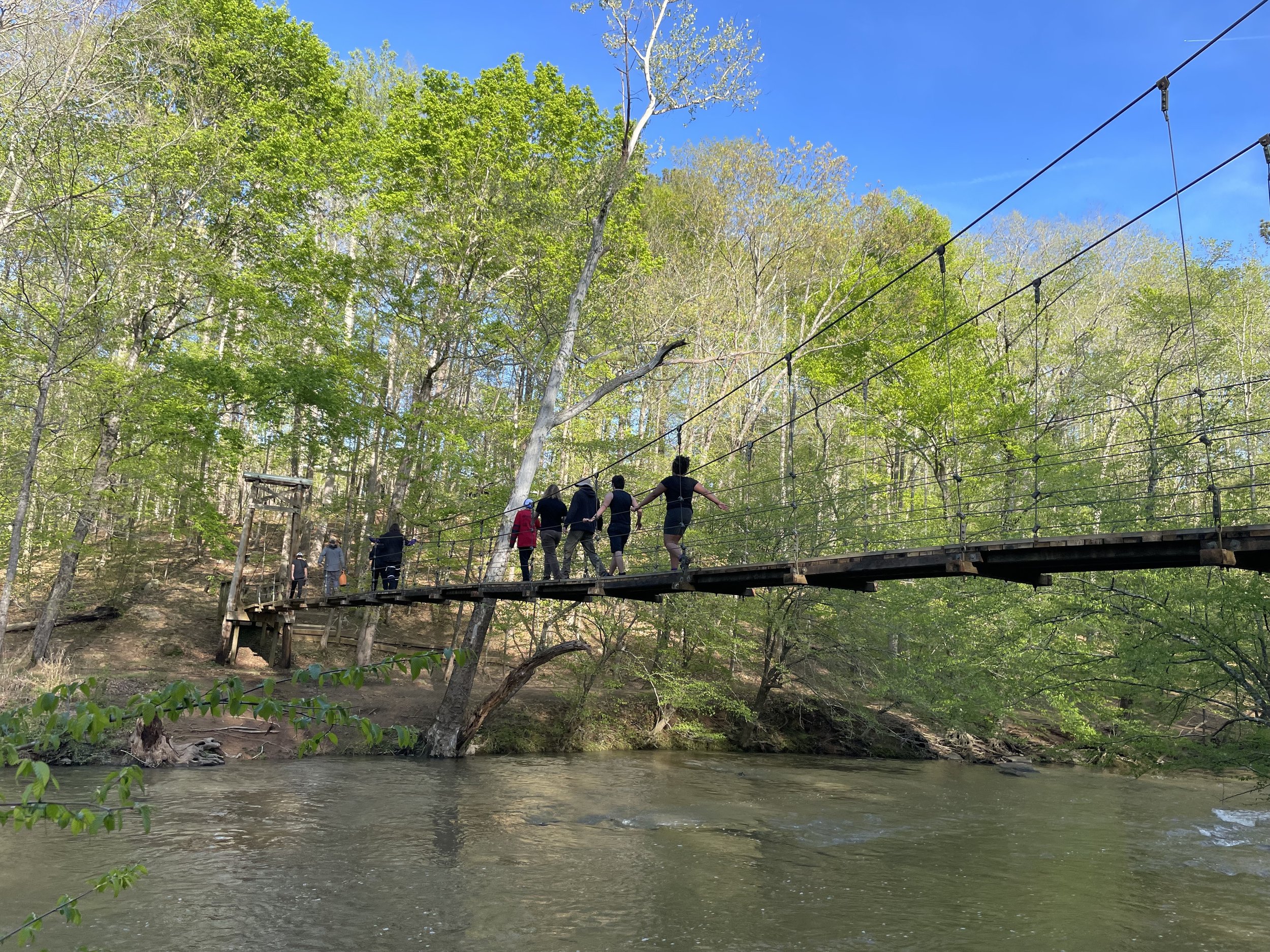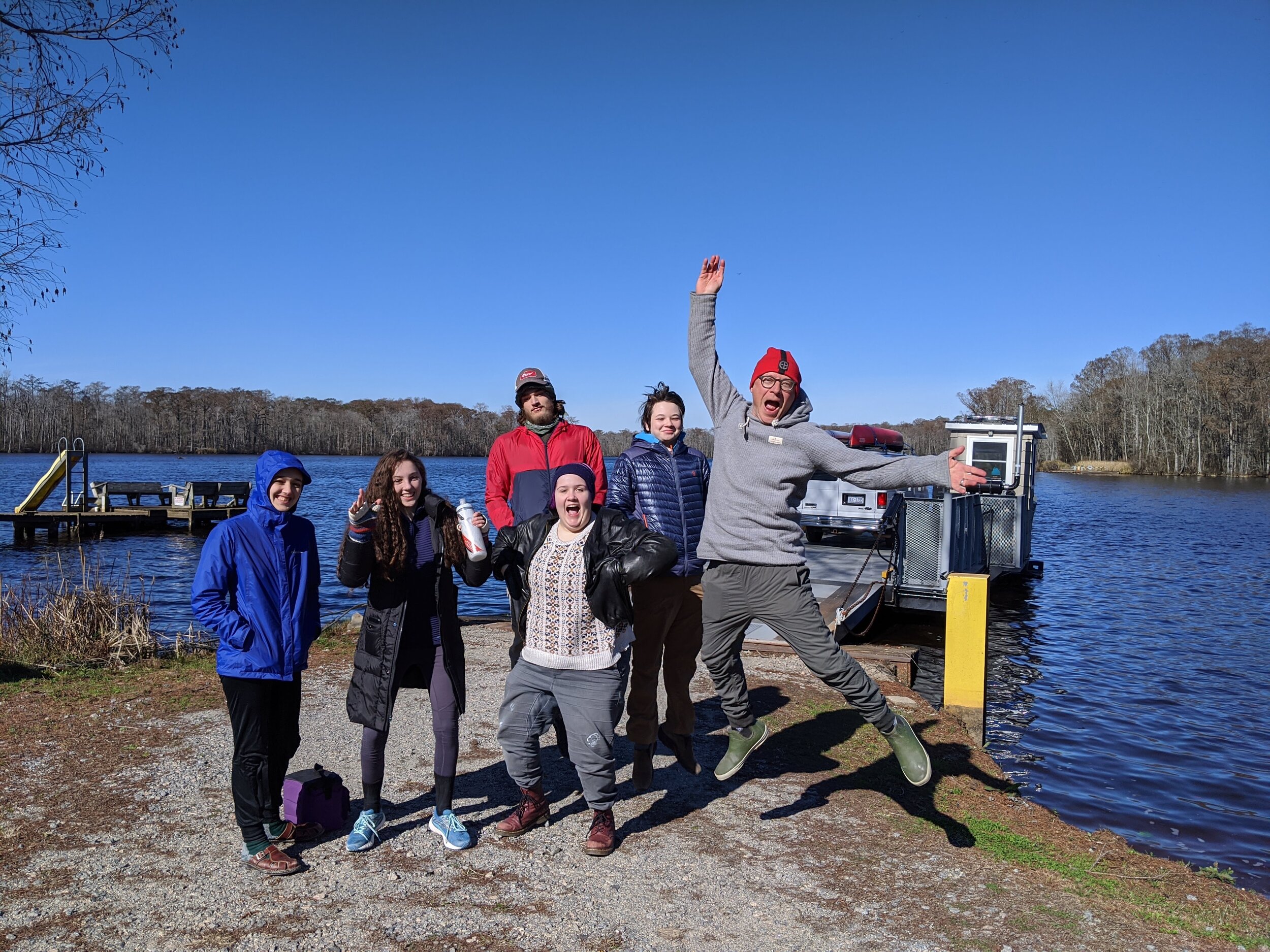Insight graduates are life-long learners who know themselves, know how to ask and research complex questions, and know how to find support and guidance when needed.

Insight Academics at a glance
Each year, Insight selects an interdisciplinary theme that frames the course offerings and big questions the community aims to explore. Academic courses in each discipline invite students to delve deeply into subject matter, emphasizing depth over breadth, while teaching students to use discipline-specific tools and frameworks. The courses are timed and planned to speak to each other in dynamic ways, often via the interdisciplinary theme. While a typical student’s schedule includes 4 or 5 core classes per semester, the most common question at registration time is…“How can I take all of the classes?”
Vision
At Insight, we believe that authentic learning requires:
Well-designed courses that provide foundational knowledge,
Opportunities to make choices and take personal responsibility for one’s education,
Social and emotional skills training and practice, and
A supportive community of peers and adults
such that students graduate competent, confident, and connected, ready to make a difference in a complex world.
A hallmark of Insight is its three-phase model of scholarship. This model assures that all Insight graduates build a solid academic foundation with the skills needed for lifelong learning. For students who wish to keep going, it also provides ample opportunity for identifying and pursuing one’s interests, be they academic, creative, technical, or some combination.

Three phases of scholarship:
Immersing, Mapping, and Transforming
Immersing
All entering students begin in the Immersing phase. In this phase, which usually lasts 1 year, students
Practice foundational skills by jumping into “the deep end” (of big ideas)
Ask pressing questions about their world and contemporary conversations
Internalize what’s at stake in their learning
Have opportunities to apply their new skills in creative ways
Learn through and contribute to seminar classes
Respect and uphold Insight’s Community Standard
Mapping
The sense of stakes students cultivate in Immersing leads naturally into the Mapping Phase, which usually lasts for 2 years.
In this phase, students
Take a bird’s eye view of history, culture, math, and science
Map out their context and the context of the new ideas they are encountering
Learn to apply myriad theoretical and conceptual frameworks
Use academic courses as a springboard from which to explore their interests
Produce work of increasing rigor and depth
Expand their leadership role in the school community
Transforming
In the final phase, Transforming, students to take their sense of stakes and their understanding of context, and use them to direct their own learning. This phase typically lasts for 1 year.
In this phase, students
Approach their world changed by their experiences in the Immersing and Mapping phases.
Propose and pursue independent study, course design, and advanced research.
Use their courses and their Transforming Project (independent semester-long interdisciplinary project) to practice making a difference in a rapidly changing world
Engage a committee of teachers and community experts to advise and evaluate their project
Make an enduring contribution to the Insight community
Students’ daily work centers around seminar courses, which include students of all ages and phases. Insight students typically take 4 academic courses per semester.
College-Style Seminars…in high school
Insight introduces college-like learning, which is typically richer than high school coursework, at developmental and practical levels appropriate for teens. Each year, courses across the curriculum are connected through an interdisciplinary theme. In 2024-25 the theme was Home. In 2025-26, the theme is Democracy.
Instead of using class time for busy-work, our seminar-style classes emphasize group discussions, deeper thinking, problem-solving, and further learning. Insight graduates are resourceful, insightful, and well-prepared for college. Students who decide not to go to college, or who postpone their post-secondary education, will have already had a rich, college-like experience during high school, which serves as a foundation for becoming life-long learners.

Assessment
Effective teaching and learning involves ongoing assessment and feedback.
Insight uses a variety of authentic assessments, ranging from traditional papers and presentations to creative projects, fieldwork, and student teaching. The results of our assessments are not presented as letter grades. What does a B- mean, anyway? How does one use it?
At Insight, feedback is provided primarily through rubric-based formative assessments, often complemented by narrative comments and verbal feedback and coaching, such that students get detailed information on their growth, mastery, and areas for improvement. Students practice self-evaluation each quarter and receive transformation transcripts (in progress) from course instructors and advisors at the end of each semester.
Student-led conferences occur once per semester. Students, caregivers, and advisors meet once in the fall and once in the spring for students to provide an update on their goals, accomplishments, challenges, and next steps, using work samples from their portfolios and feedback they have received to provide context for the discussion.
End-of-semester evaluations give comprehensive feedback on
Progress on the Transformation Learning Objectives
Credits students earned
Completion of graduation requirements according to Insight’s three-phase model
Academic Advising
In twice-monthly, one-on-one advising, all students are supported in their efforts to
Choose courses that appeal to them
Fulfill graduation and phase requirements
Develop academic and organizational skills
Draw connections across their coursework
Identify community mentors in addition to Insight faculty
Insight is, in many ways, a micro-college experience - offered at developmental and practical levels appropriate for teens.
Graduating from Insight
Insight graduates are life-long learners who know themselves, know how to ask and research complex questions, and know how to find support and guidance when needed.
At Insight, coursework is just the beginning. We expect students to use the flexibility of the Insight model to develop and pursue their creative, academic, service, and vocational interests through coursework and community engagement. Through advising, students receive guidance and support for plotting their own unique path. This is all captured in an Insight portfolio, largely developed by the student, as they progress through the Immersing, Mapping, and Transforming phases of the learning model.







